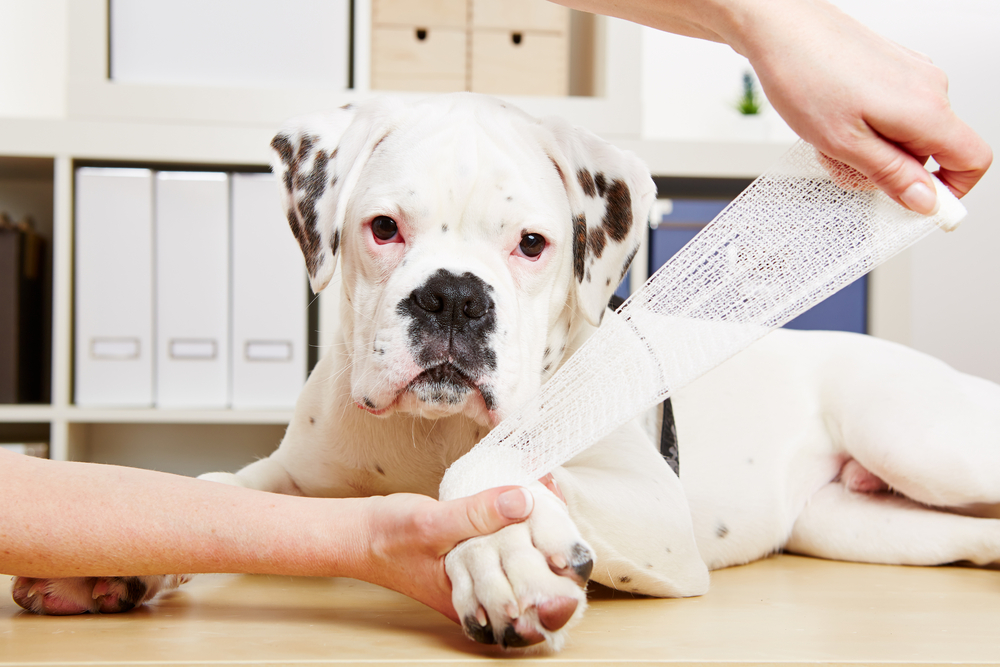Pet Emergency Prep: How to Financially Plan for Urgent Veterinary Care
No one expects an emergency trip to the veterinarian. But when it happens, it can feel overwhelming, especially when faced with urgent decisions, high emotions, and unplanned expenses. From broken bones to sudden illness, veterinary emergencies can arise at any time. Knowing how to prepare financially can help ensure the best care for your pet without the added burden of last-minute financial panic.
At Omega Veterinary Group in San Mateo, CA, helping pet owners plan for emergencies is part of providing comprehensive, compassionate care. This guide outlines how to financially prepare for the unexpected, and the steps you can take to safeguard your pet’s future.
What Is Considered a Veterinary Emergency?
Veterinary emergencies are medical situations that require immediate intervention to save a pet’s life or prevent long-term harm. Common examples include:
- Trauma (e.g., being hit by a car)
- Difficulty breathing
- Seizures
- Collapse or unconsciousness
- Severe vomiting or diarrhea
- Excessive bleeding
- Sudden bloating or abdominal pain
Recognizing these signs early can make a critical difference in your pet’s health outcome. Prompt action not only increases the chances of recovery but may also reduce the extent and cost of treatment.
Emergency vs. Urgent Care
Not every situation is life-threatening. Issues such as limping, minor skin infections, or a broken nail may require timely attention, but not necessarily emergency-level care. Differentiating between emergency and urgent cases can help guide decisions and financial planning. Urgent care is often less expensive than emergency care.
Why Emergency Vet Care Costs More
Emergency veterinary care often involves higher costs for several reasons, including:
- After-hours staffing
- Access to advanced diagnostic equipment
- Intensive monitoring
- Specialized medications and procedures
- Immediate care without prior diagnostics
- Skilled team members with extra training and credentials
For serious cases, total expenses may range from several hundred to several thousand dollars. The average cost of an emergency visit often begins around $300 and can rise quickly depending on your pet’s condition.
How to Prepare Financially for a Pet Emergency
Planning ahead can provide peace of mind when the unexpected occurs. Consider these options to create a financial safety net:
1. Start an Emergency Fund
Set aside a fixed amount each month in a dedicated pet emergency fund. Even saving $25–$50 regularly can build a cushion over time. A high-yield savings account or digital envelope system can keep funds accessible but separate from everyday spending.
2. Explore Pet Insurance
Pet insurance helps cover the cost of unexpected illness or injury. It typically reimburses a percentage of covered costs after a deductible is met. Policy details vary, so review each plan carefully. Some exclude pre-existing conditions, while others limit coverage for chronic issues. Insurance typically doesn’t pay up front like in the human health system- they tend to reimburse care costs. This makes have both an emergency fund and pet insurance critical.
3. Look Into Veterinary Financing Programs
Several services offer financing specifically for veterinary care. You may consider using:
- CareCredit: Offers short-term interest-free and long-term low-interest payment plans for qualified users.
- Scratchpay: Provides simple, fast financing approval for various care levels.
- AllPet: Tailored solutions for pet care financing with clear terms and flexible payments.
- Varidi: A platform designed to help pet owners find manageable payment plans.
Applying for financing in advance, before an emergency arises, can streamline the process when every moment counts. Not every veterinarian accepts every payment plan. Omega offers both Care Credit and Scratch Pay as options to help pet owners handle emergency costs.
Prevention as a Financial Strategy
Preventive care might not seem directly connected to emergency costs, but it plays a major role in reducing the likelihood of crisis situations. Routine exams, lab work, and dental care can uncover subtle issues before they escalate into emergencies.
Omega Veterinary Group encourages regular wellness visits, which often help prevent or manage:
- Diabetes
- Kidney disease
- Dental infections
- Heart disease
- Parasitic infections
Treating conditions early can reduce medical risks and long-term costs. Many conditions that could be found and handled during a wellness exam can become emergencies if not treated, meaning you’ll save yourself thousands of dollars if you choose to prevent illnesses and treat any problems found promptly.
Talk With Your Veterinarian About Cost
Conversations about finances should not feel awkward- we have them every day, with every pet owner. Open discussions help veterinary teams tailor care to your needs and resources. We understand that not every pet and pet owner have the same circumstances, and we’re here to help you choose the best plan for you.
Questions to Ask During a Visit:
- What is the estimated cost of care?
- Are there multiple treatment approaches available?
- Can treatment be staged or prioritized?
- Do you offer payment plans or recommend financing providers?
Veterinarians appreciate honest communication and want to help pet owners make informed, confident decisions.
What to Expect: Sample Emergency Costs for Pets
| Service | Estimated Cost |
| Physical exam (emergency) | $100–$200 |
| Bloodwork or X-rays | $150–$400 |
| Overnight hospitalization | $800–$2,000 |
| Surgery (e.g., obstruction) | $2,000–$5,000 |
| Ongoing critical care | $1,000+/day |
Understanding potential care price ranges can help you budget and choose the right insurance or financing plan. Resources like the ASPCA and MarketWatch also provide helpful breakdowns for annual pet ownership costs.
Emotional Toll: Planning for the Human Side of Emergencies
Financial decisions are only part of the picture. Pet emergencies bring high-stress moments filled with uncertainty and emotional pressure. In these times, support and preparation can help reduce the burden. Don’t let the first time you’re considering emergency needs happen in the emergency room.
Here are a few things to consider that can help you feel more grounded and ready if the unexpected happens
- Talking through emergency scenarios in advance with family
- Identifying local emergency clinics and saving their contact info
- Enrolling in a pet CPR and first-aid training course
- Keeping digital or printed records of your pet’s health history
Being emotionally and logistically prepared can reduce panic and help you act quickly when needed.
Emergency Checklist: What Every Pet Owner Should Have
- A pet-specific first aid kit
- Recent medical records and vaccination history
- Emergency clinic contacts
- Extra medications and prescription info
- Leash, carrier, and identification tags
- Familiar blanket or towel for transport

Frequently Asked Questions
How much should I save for emergencies?
A general guideline is to have $1,000–$3,000 set aside per pet. Adjust based on age, breed, and known health conditions.
Is pet insurance worth it?
For many pet owners, yes. A single emergency often exceeds the cost of annual premiums. Review plans carefully to ensure coverage matches your pet’s needs.
What if I cannot afford treatment?
Speak with the veterinary team. They may offer alternative treatment paths, connect you with financial resources, or assist in prioritizing care based on budget and need.
Does financing affect my credit?
Some programs like CareCredit require a credit check. Others offer no-credit-required plans. Read terms carefully before applying.
When Emergencies Happen, Omega Veterinary Group Is Here to Help
Pet emergencies can happen anytime. Planning now, before a crisis, means less stress and more clarity when your pet needs help the most.
At Omega Veterinary Group, the goal is to ensure every pet has access to compassionate, timely care without financial confusion standing in the way. Whether you’re evaluating insurance, exploring financing, or preparing an emergency plan, our team is ready to support you.
To discuss how to prepare for veterinary emergencies or explore your options, contact us. Planning ahead is the best way to protect what matters most- your pet’s life and well-being.






Leave A Comment